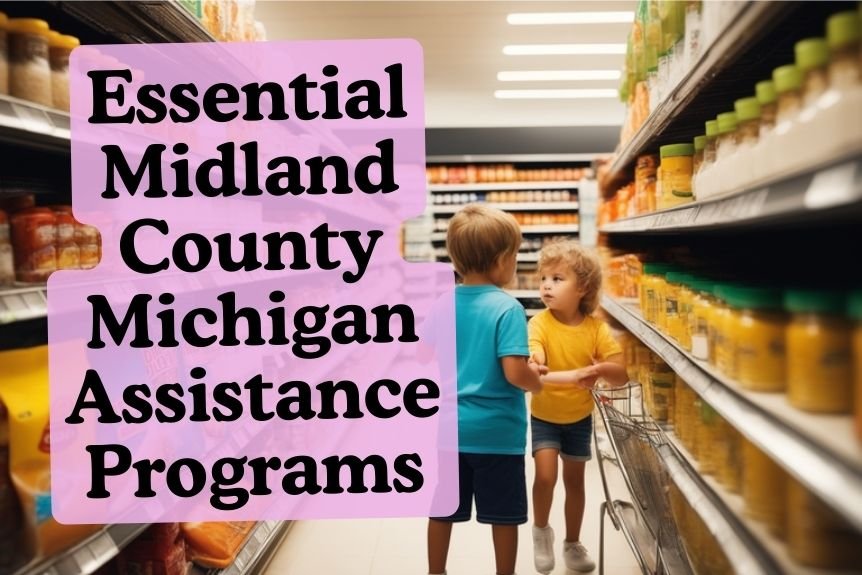Did you know that the Michigan SER Emergency Relief Program offers financial assistance to help low-income households facing unexpected emergencies?
If you’re curious about the types of financial aid available and how you can qualify for this support, keep on reading to discover the specific ways in which the program can provide relief during challenging times.
Eligibility Criteria for Financial Assistance

To assess eligibility for financial assistance through the Michigan SER Emergency Relief Program, criteria regarding household size, income, and countable cash assets exceeding $15,000 are meticulously evaluated. Household size plays an essential role in determining eligibility, as larger households may have higher income thresholds.
Income is another key factor, with individuals or families earning below a certain level being considered eligible for aid. Countable cash assets exceeding $15,000 act as a limit on eligibility, ensuring that those with significant assets don’t qualify for assistance. It’s important to note that certain assets such as a homestead, one vehicle, and personal household goods are excluded from this count, providing a more accurate representation of an individual or family’s financial need.
Burial services applicants are an exception to the countable cash asset limit criteria, allowing them to receive financial assistance regardless of their asset level. Overall, the eligibility criteria for financial assistance from the Michigan SER Emergency Relief Program are carefully designed to assess aid qualification based on a combination of financial aspects and household composition.
Types of Financial Aid Available
Considering the various forms of financial assistance provided by the Michigan SER Emergency Relief Program, it is essential to understand the types of aid available to eligible individuals and families. The table below outlines the different types of financial aid offered by the SER Program:
| Financial Aid | Description | Eligibility |
|---|---|---|
| Heat and Utilities | Assistance for heating and utility bills to support low-income households facing financial hardships. | Eligible low-income households |
| Home Repairs | Aid for home repairs addressing unsafe conditions and ensuring the maintenance of essential services. | Eligible individuals/families in need of home repairs |
| Relocation Expenses | Financial support for relocation costs like rent, security deposits, or moving expenses during emergencies. | Individuals/families requiring assistance in relocation |
In addition to the above, the SER Program also provides aid for burial expenses when existing resources are insufficient. Moreover, the program collaborates with non-profit organizations to extend financial assistance to individuals and families facing emergencies. This extensive range of financial aid aims to support those in need within Michigan through the Michigan SER Emergency Relief Program.
Application Process for Financial Help

The application process for financial assistance through the Michigan SER Emergency Relief Program necessitates the submission of required documentation, including verification of income, household size, and assets.
To apply for help, you can follow these steps:
- Online Application: Utilize MI Bridges to complete your application conveniently from your home.
- In-Person Application: Visit local MDHHS offices if you prefer to apply in person.
- Varied Processing Times: Be aware that processing times for applications may differ based on the volume of submissions.
- Complete Documentation: Make sure all necessary documents are included to facilitate the timely processing of your application.
Throughout the application process, assistance specialists are available during business hours to guide you.
Impact of Financial Support on Recipients
With SER assistance, recipients experience notable improvements in their financial stability for essential needs. The financial support provided by SER plays a vital role in reducing out-of-pocket expenses during emergency situations. This aid not only helps individuals and families cover basic necessities but also increases their access to critical services such as healthcare and utilities.
By receiving support from the Michigan SER Emergency Relief Program, eligible recipients have reported a decrease in overall financial stress. Additionally, SER assistance has been instrumental in alleviating food insecurity among those in need. The impact of this financial support goes beyond just monetary aid, as it enhances the quality of life for recipients by ensuring they can meet their basic needs during challenging times.
Additional Resources for Financial Relief

After exploring the impactful financial support provided by the Michigan SER Emergency Relief Program, let’s now shift our focus to the availability of additional resources for financial relief. When seeking additional assistance beyond the primary aid offered, low-income households can benefit from a range of supplementary support:
- Financial aid and utilities assistance: Available to help individuals facing emergencies with heat and utilities payments.
- Home repairs: Services provided to rectify unsafe conditions and prevent the loss of essential utilities.
- Relocation support: Assistance with rent, security deposits, and moving expenses to aid in moving to a new residence.
- Accessing financial relief: Additional resources like forms and publications are accessible for download and printing, facilitating the process of obtaining emergency financial assistance.
These resources not only broaden the scope of assistance available but also streamline the support process for those in need of financial aid, home repairs, or relocation assistance.
Frequently Asked Questions
Conclusion
In summary, the Michigan State Emergency Relief (SER) Program offers important financial assistance to low-income households facing unforeseen emergencies.
By providing immediate aid for heat, utilities, home repairs, relocation, and burial expenses, SER plays a critical role in alleviating financial burdens during times of crisis.
Through partnerships with non-profit organizations and a streamlined application process, the program efficiently delivers support to those in need.
The impact of this financial relief is significant, offering temporary stability during challenging circumstances.






